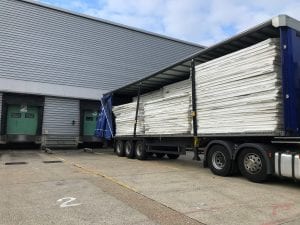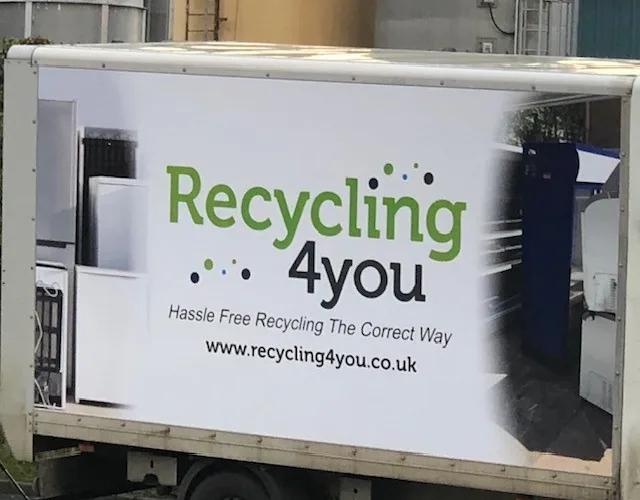Sustainable Disposal Solutions for Coldroom Panels in UK Large Projects
Introduction:
As large construction and infrastructure projects continue to shape the landscape of the United Kingdom, it is crucial to prioritize sustainable practices throughout their lifecycle. A key aspect of sustainable construction involves the responsible disposal of materials, especially those with significant environmental impact. Coldroom panels, commonly used in large-scale projects, pose a unique challenge due to their composition and potential for harmful waste. This article explores sustainable disposal solutions for coldroom panels in UK large projects, emphasizing the importance of environmentally conscious practices.
Understanding Coldroom Panels:
Coldroom panels, also known as insulated panels, are widely used in construction projects requiring temperature-controlled environments, such as food processing facilities, cold storage warehouses, and pharmaceutical production units. These panels typically consist of a core material, such as expanded polystyrene (EPS) or polyurethane (PU), sandwiched between metal sheets.
The Disposal Challenge:
While coldroom panels provide excellent thermal insulation, their disposal presents a significant challenge due to their composition. Both EPS and PU are petroleum-based products and can release harmful gases if incinerated. Additionally, their metal components require separate treatment to avoid contamination of natural resources. Check out our services for cold room panel disposal
To address the disposal challenge of coldroom panels in UK large projects, several sustainable solutions can be implemented:
-
Reuse and Repurpose: When dismantling a coldroom, careful disassembly and separation of the panel components can allow for the reuse and repurposing of individual elements. Metal sheets can be recycled, reducing the environmental impact associated with metal production. The core materials, if in good condition, can potentially find use in other non-structural applications.
-
Recycling: In cases where the panels cannot be reused or repurposed, recycling should be the preferred option. Metal sheets can be separated and sent to metal recycling facilities, reducing the need for new metal extraction. The EPS or PU cores can also be recycled by specialized recycling facilities equipped to handle these materials. Recycling not only reduces waste but also conserves energy and minimizes greenhouse gas emissions.
-
Responsible Disposal: If reuse and recycling options are not viable, it is essential to dispose of coldroom panels responsibly. Landfill should be the last resort, as it contributes to pollution and consumes valuable land. However, if disposal in a landfill is unavoidable, steps should be taken to ensure proper containment and minimize environmental impact.
-
Sustainable Material Selection: One of the most effective strategies for reducing the disposal challenge is to make sustainable choices during the initial design and construction phases. Opting for environmentally friendly alternatives to traditional coldroom panels, such as biodegradable or recyclable materials, can significantly reduce the long-term environmental impact and ease the disposal process.
Government Support and Regulations:
The UK government plays a crucial role in promoting sustainable construction practices. It can provide incentives and support for research and development of sustainable alternatives to coldroom panels. Additionally, regulations and guidelines can be established to encourage responsible disposal practices and discourage the use of environmentally harmful materials.
Conclusion:
Addressing the disposal challenge of coldroom panels in large UK projects requires a holistic approach that prioritizes sustainability and responsible waste management. Reuse, recycling, and responsible disposal practices can significantly reduce the environmental impact associated with these panels. Furthermore, proactive measures such as sustainable material selection and government support are essential for driving long-term change. By implementing these solutions, the construction industry can contribute to a greener, more sustainable future while meeting the demands of large-scale projects.
Large Scale Coldroom Panel Disposal Project Recently Completed:
Over the last month we have removed over 142t of polystyrene coldroom panels from a site on the Thames for a customer, providing upto 2 artics per day for the last month. We untimatly carried out 31 artic movements of panels from site, often with only a day or two’s notice for collection from the customer. This was one of our larger projects, which we carry out for customers and involved lots of movments and assistance from the customer, to load the artics once they had arrived on site and complete our paperwrork for the collection. Once loaded the artics of coldroom panels were transported to our partners processing plant for recycling of the metal and polystyrene. Once each load had been recieved at the processing plant and weighed we were then able to complete and supply a Waste Transfer Note to our customer to prove correct collection and recycling of the cold room panels.

